Boston, a city renowned for its rich history and prestigious educational institutions, offers some of the best accelerated nursing programs in the country.
These programs are designed for individuals who already hold a bachelor’s degree in another field and wish to transition into nursing quickly and efficiently.
With the demand for skilled nurses on the rise, choosing the right program is crucial for a successful career in healthcare.
In this article, we’ll explore the top 10 institutes in Boston that provide accelerated nursing programs. From well-established universities to specialized nursing schools, these institutions offer rigorous curricula, experienced faculty, and invaluable clinical experiences.
Whether you’re looking to advance your career or make a significant change, these programs can help you achieve your goals in the healthcare industry.
Top 10 Best Institutes for Accelerated Nursing Programs in Boston
Boston is renowned for its exceptional educational institutions, and its accelerated nursing programs are no exception.
These programs cater to individuals who already possess a bachelor’s degree in another field and seek to transition into nursing swiftly.
Here are the top 10 institutes in Boston offering outstanding accelerated nursing programs:
1. Northeastern University, Boston
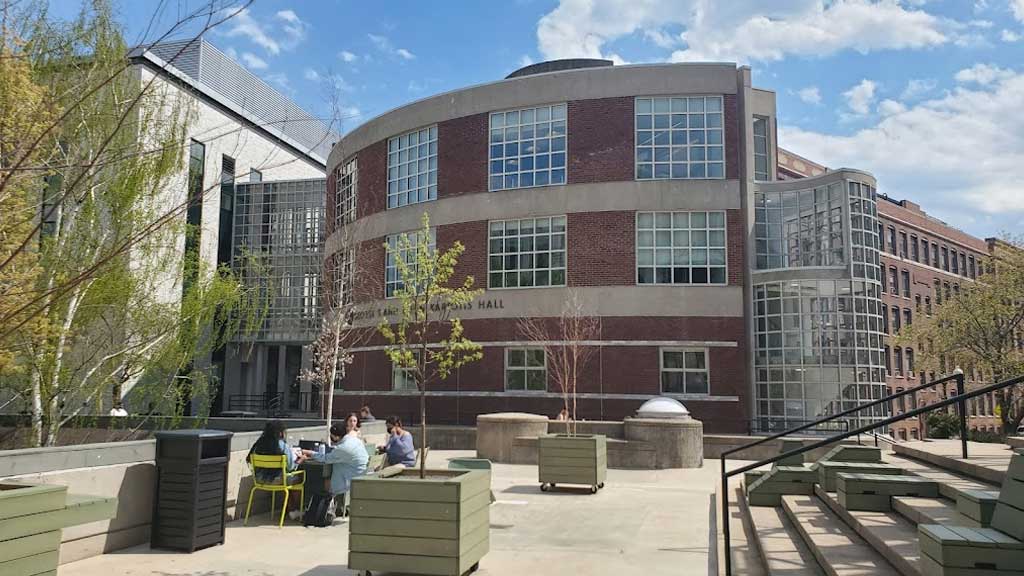
Northeastern University, established in 1898, is a premier private research institution known for its high research activities.
The university’s nursing school has over 50 years of experience in nursing education, making it a leader in the field.
The Accelerated Bachelor of Science in Nursing (ABSN) program is one of the most acclaimed offerings. This 16-month program includes 67 credits over four semesters and combines instructional coursework with hands-on learning.
Most credits are earned online, providing flexibility. However, clinical rotations and simulation lab sessions enhance practical skills.
Graduates leave the program ready to excel as registered nurses, equipped with the necessary nursing skills to improve health outcomes and reduce health disparities.
Northeastern’s commitment to innovative programs and interprofessional practice makes it a top choice for aspiring nurses.
2. MGH Institute of Health Professions, Boston
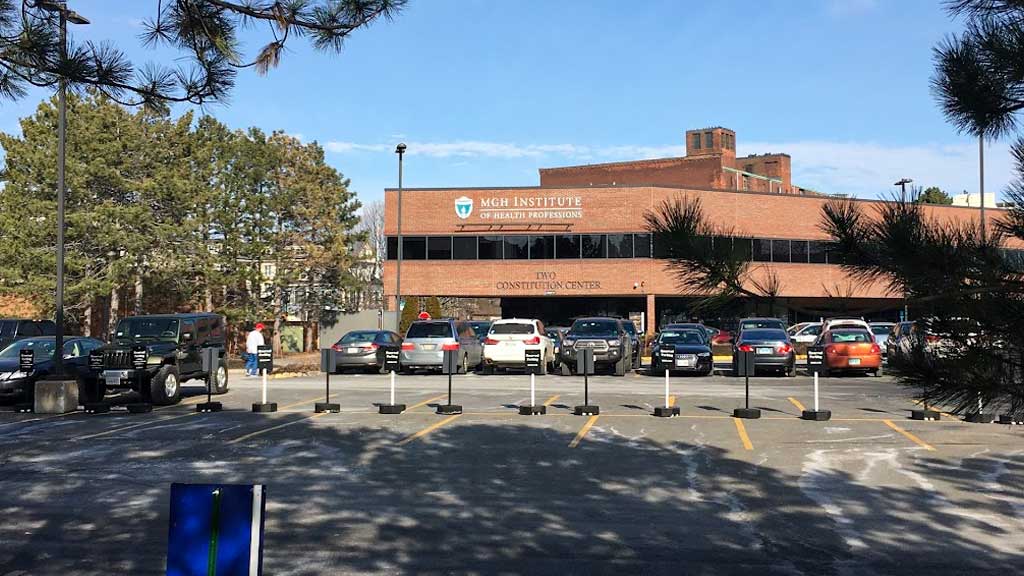
The MGH Institute of Health Professions, established in 1977, offers a notable Accelerated Bachelor of Science in Nursing (ABSN) program.
This 16-month program begins in January and May, catering to individuals holding a bachelor’s degree in other fields. With a faculty-to-student ratio of 1:6, students receive personalized attention.
There are over 300 clinical rotation sites, providing practical experience in diverse healthcare settings. The practice center allows students to manage complex conditions, offering real-life experience in patient care.
Within 3-6 months of graduation, graduates often find employment at prestigious institutions like Massachusetts General, Brigham and Women’s, and Boston Children’s Hospital.
3. University of Massachusetts-Boston, Boston
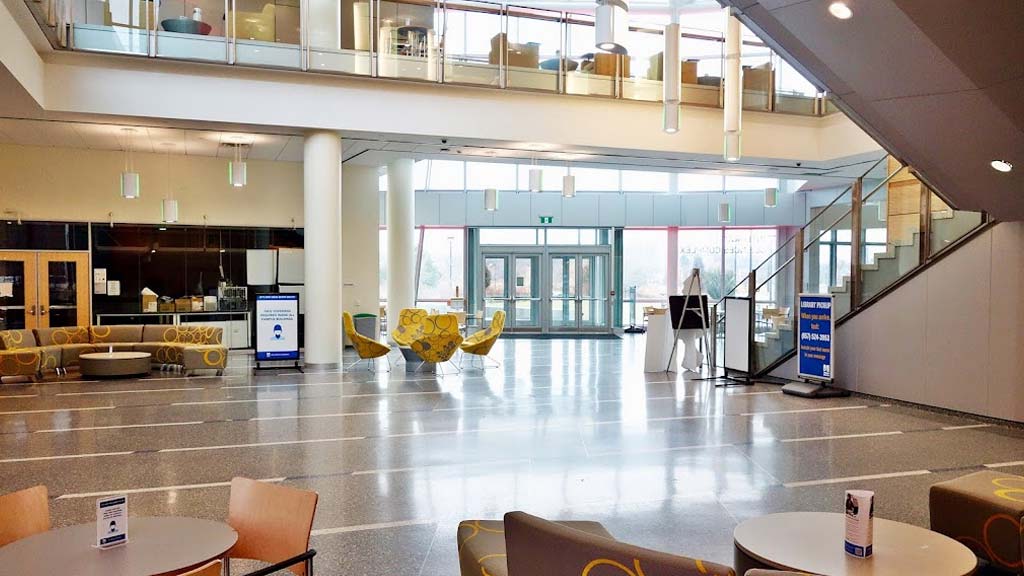
University of Massachusetts-Boston’s College of Nursing and Health Sciences stands out for its pioneering nursing education.
Ranked among the nation’s top nursing colleges, it prepares students for the evolving global healthcare environment.
As the 9th largest nursing school in the U.S., it offers extensive networking with its 200 healthcare organization affiliations.
The Nursing – Accelerated, BS program spans 15 months and starts every summer. Graduates earn a BSN degree, qualifying them to take the NCLEX-RN.
This full-time program blends online and classroom learning, covering courses like Nursing Process and Skills, Mental Health Nursing, and Leadership and Professional Practice.
This comprehensive curriculum and distinguished faculty ensure students are well-prepared for successful nursing careers.
4. Simmons College, Boston
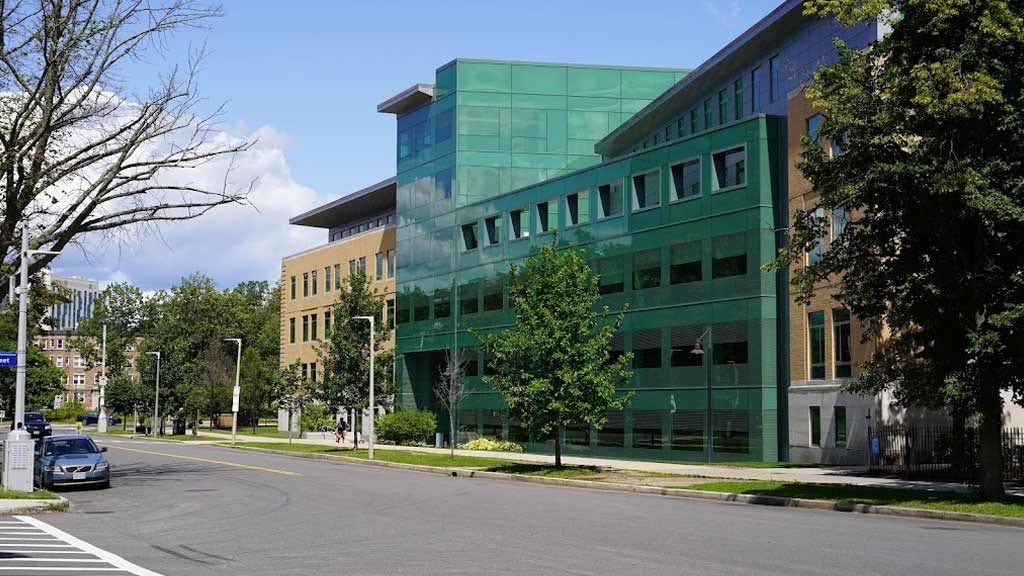
Simmons College, established in 1899, is renowned for its Accelerated Nursing Option. This 16-month program allows students to complete traditional BSN coursework quickly.
Offered each September, the program includes daytime classes with clinicals scheduled in the evenings and weekends. With a student-to-faculty ratio of 12:1, students receive personalized attention from practicing nurses.
The program boasts a high success rate, with graduates consistently achieving above a 90% pass rate on the NCLEX-RN exam, demonstrating the program’s effectiveness and rigorous training. This makes Simmons College a top choice for aspiring nurses in Boston.
5. MCPHS University, Boston
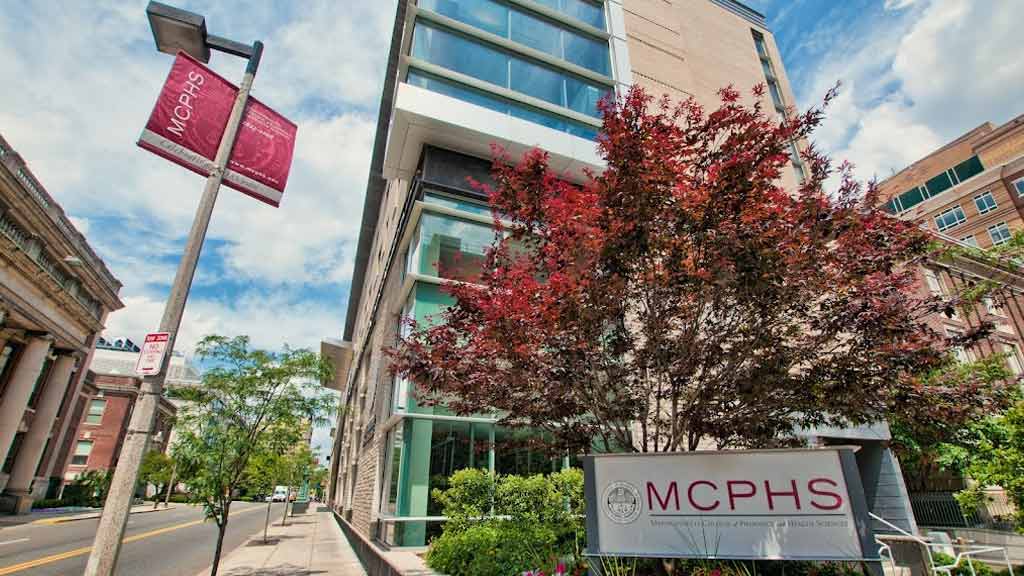
MCPHS University, Boston, founded in 1823, is the oldest higher education institution in Boston. Known for its Bachelor of Science in Nursing, Postbaccalaureate program, this 16-month course starts twice a year in the Fall and Spring semesters.
The curriculum effectively combines classroom instruction with clinical practice. Students gain hands-on experience in skilled nursing, mental health hospitals, community, and home health agencies, all within Boston’s renowned Longwood Medical and Academic Area.
This placement ensures that students develop essential skills and knowledge, preparing them for a successful nursing career.
6. Boston College
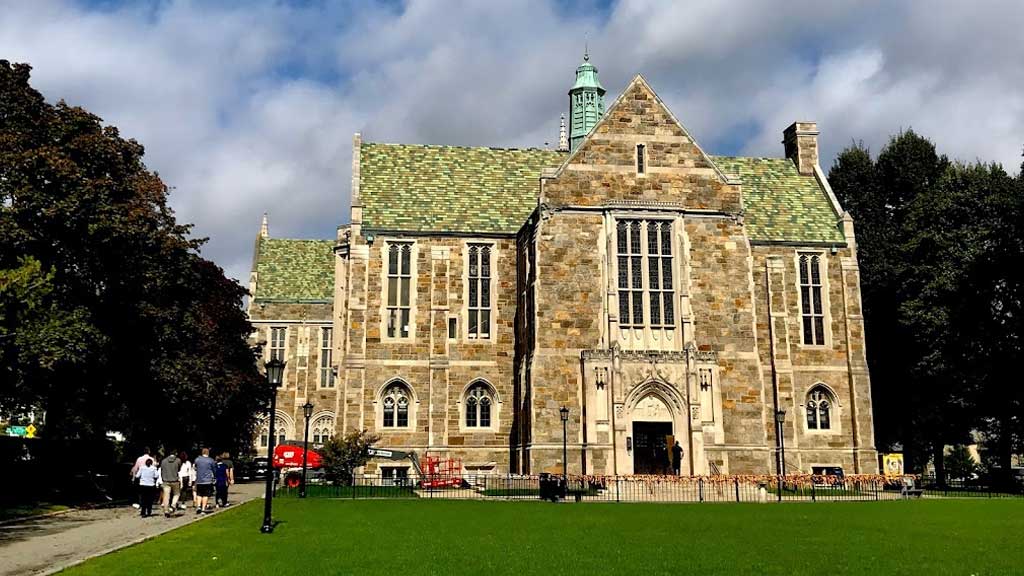
Boston College, perched on a scenic hilltop in Chestnut Hill, offers a rigorous Accelerated Bachelor of Science in Nursing (ABSN) program that’s highly respected.
Established in 1863, this Jesuit institution integrates a strong liberal arts foundation with professional nursing education.
The 16-month ABSN program combines comprehensive coursework with hands-on clinical rotations at renowned healthcare facilities.
With a low student-to-faculty ratio, Boston College ensures personalized attention and mentorship.
Graduates are well-prepared to excel in various healthcare settings, making it an excellent choice for aspiring nurses aiming to join the profession efficiently. For more details, visit bc.edu or contact (617) 552-8000.
7. Connell School of Nursing
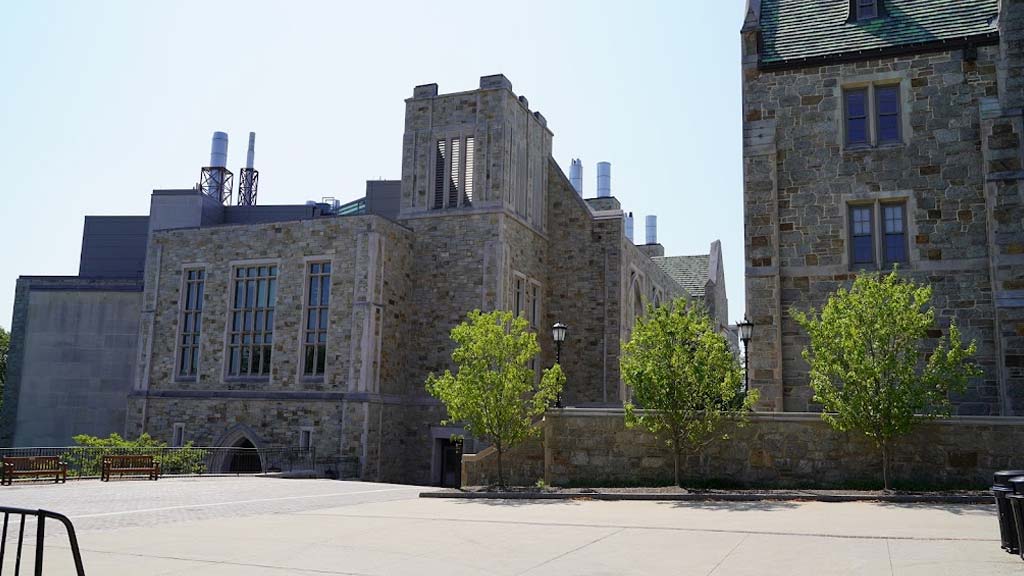
The Connell School of Nursing, part of Boston College in Chestnut Hill, offers a well-regarded Accelerated Bachelor of Science in Nursing (ABSN) program.
This 16-month course is designed for individuals holding a bachelor’s degree in another field, providing a swift path to a nursing career.
Combining rigorous coursework with clinical rotations at top-tier healthcare facilities, the program ensures students gain essential skills and knowledge.
With a low student-to-faculty ratio, the Connell School emphasizes personalized mentorship. Situated at 140 Commonwealth Ave, the school’s strong liberal arts foundation supplements its nursing education, preparing graduates to excel in various healthcare settings.
Well-connected alumni and Boston College’s reputable status enhance networking and career opportunities for students.
8. College of Nursing and Health Services
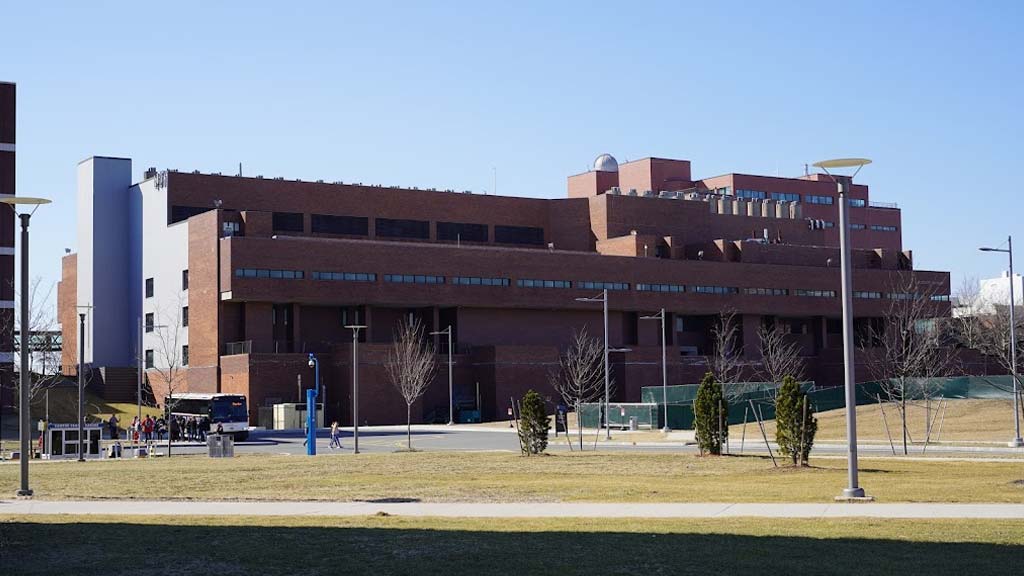
The College of Nursing and Health Services at UMass Boston is an excellent choice for accelerated nursing programs.
Located in the Quinn Administration Building, 100 William T Morrissey Blvd, Boston, MA 02125, this college boasts a 5.0 rating. Their Accelerated Bachelor of Science in Nursing (BSN) program spans 15 months, starting every summer.
Students benefit from a robust curriculum integrating online and classroom learning. Essential courses include Nursing Process and Skills, Mental Health Nursing, and Leadership and Professional Practice.
With affiliations to over 200 healthcare organizations, students gain practical experience that prepares them for the NCLEX-RN exam and successful nursing careers.
9. MGH Institute of Health Professions
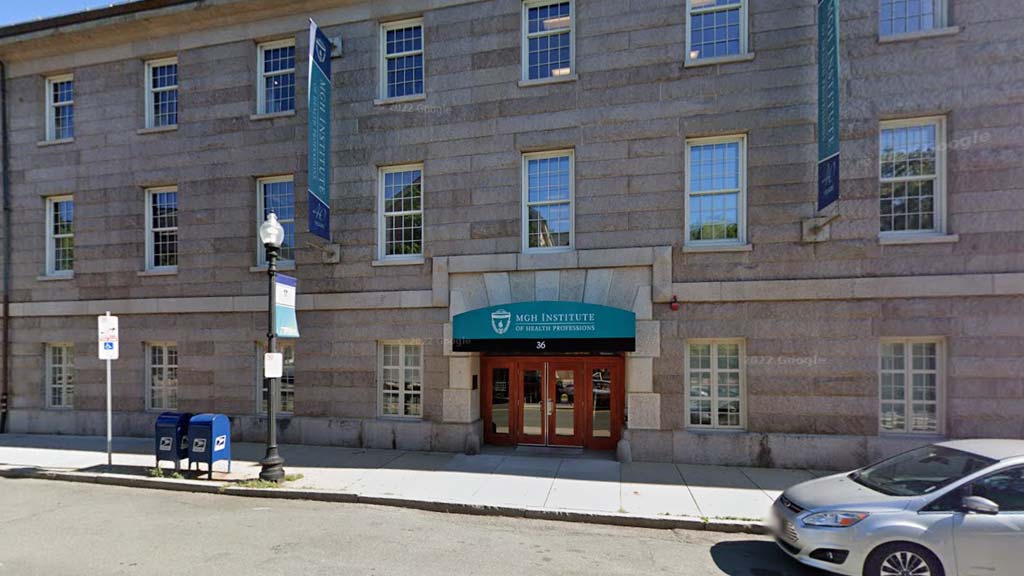
MGH Institute of Health Professions, established in 1977, offers a revered Accelerated Bachelor of Science in Nursing (ABSN) program.
This 16-month course starts in January and May, specifically for students who hold a bachelor’s degree in another field. It features a commendable faculty-to-student ratio of 1:6, ensuring individualized attention.
The program includes over 300 clinical rotation sites, allowing students to gain hands-on experience in diverse healthcare settings.
Graduates often find employment within 3-6 months at prestigious institutions like Massachusetts General, Brigham and Women’s, and Boston Children’s Hospital, showcasing the program’s quality.
10. Cambridge College
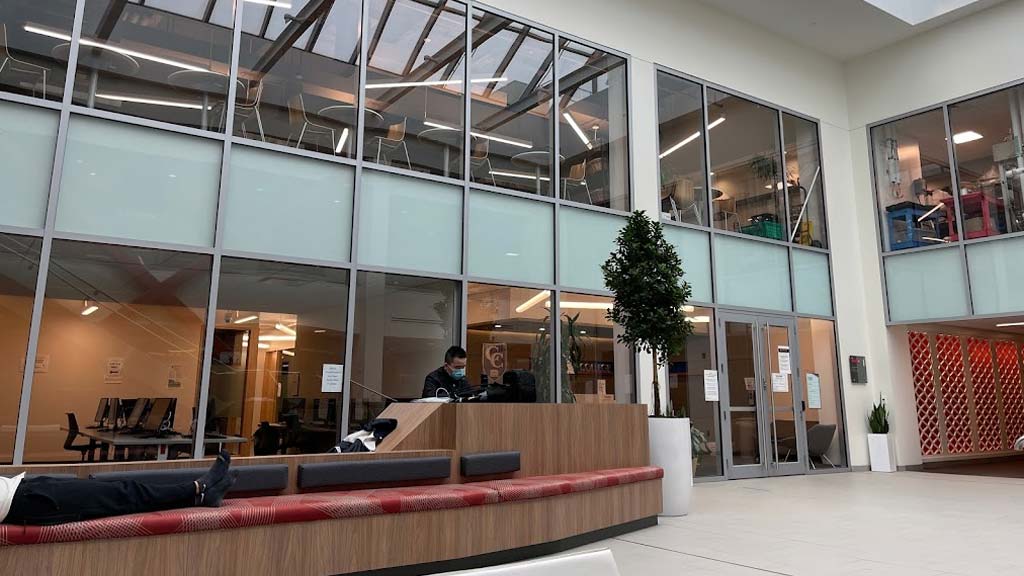
Cambridge College, located at 500 Rutherford Ave, Boston, MA, offers a notable Accelerated Bachelor of Science in Nursing (ABSN) program.
This program is designed for students holding a bachelor’s degree in another discipline and aims to equip them with essential nursing skills in a condensed timeframe.
Students benefit from a comprehensive curriculum that combines online learning with hands-on clinical experience, ensuring they are well-prepared for the NCLEX-RN exam.
With a favorable student-to-faculty ratio, Cambridge College provides personalized attention, fostering a supportive learning environment. This approach helps aspiring nurses achieve their career goals efficiently and effectively.
What to Consider When Choosing an Accelerated Nursing Program in Boston
When choosing an accelerated nursing program in Boston, consider the following factors to ensure it aligns with your educational and career goals:
Program Accreditation and Reputation
When choosing an accelerated nursing program in Boston, start by verifying that the program is accredited by a recognized body such as the Commission on Collegiate Nursing Education (CCNE) or the Accreditation Commission for Education in Nursing (ACEN).
Accreditation is crucial as it ensures the quality of education and affects your eligibility for licensure.
Additionally, research the program’s reputation by seeking feedback from current students and alumni, and check for rankings and reviews to gauge the program’s standing within the nursing community.
Program Length and Schedule
Consider the duration of the program and how it fits with your personal and professional life. Accelerated nursing programs are designed to be completed more quickly than traditional programs, so it’s important to understand the total length and the pace at which you will be expected to complete coursework and clinical requirements.
Additionally, review the schedule options available, such as full-time or part-time formats, and whether the program offers evening or weekend classes, to ensure it aligns with your availability and commitments.
Curriculum and Specializations
Examine the core curriculum of the program to ensure it covers essential nursing topics and provides adequate practical experience. Look for a curriculum that balances theoretical knowledge with hands-on clinical practice.
If you have specific interests within nursing, such as pediatrics or geriatrics, check if the program offers specialized tracks or elective courses that align with your career goals.
Clinical Placement Opportunities
Investigate the clinical placement opportunities provided by the program. Effective programs have strong partnerships with reputable healthcare facilities, offering a variety of clinical experiences that are crucial for hands-on learning.
Additionally, consider the level of support the program offers in securing and managing clinical placements, as this can significantly impact your overall educational experience.
Faculty Expertise and Support
Research the qualifications and professional experience of the faculty members. Faculty with extensive experience in the field can enhance your learning experience and provide valuable insights into the nursing profession.
Also, assess the level of student support provided by the program, including academic advising, career counseling, and tutoring, to ensure you have the resources needed to succeed.
Cost and Financial Aid
Compare the cost of the program with other options available in the area. Look into the total expenses, including tuition and any additional fees.
Financial considerations are crucial, so investigate the availability of financial aid options such as scholarships, grants, and loans.
Understanding the financial support available and the application processes will help you manage the cost of your education.
Licensing Exam Preparation
Ensure that the program includes thorough preparation for the NCLEX-RN exam, which is required for licensure as a registered nurse.
This preparation may involve review courses, practice exams, and other study resources. A program with strong NCLEX-RN preparation will help you confidently approach the licensing exam and increase your chances of passing on your first attempt.
Job Placement and Career Services
Look into the program’s job placement rates and its effectiveness in helping graduates secure nursing positions.
A program with strong career services can provide valuable support in job search efforts, including resume workshops, interview preparation, and networking opportunities.
Evaluating these aspects will give you an idea of how well the program prepares its graduates for the nursing job market.
Location and Accessibility
Consider the location of the program in relation to your home or work. The convenience of the campus location and the potential commute time can affect your overall experience.
If you prefer an online format, ensure that the program offers a robust virtual learning environment that meets your needs and allows for flexible learning.
Program Flexibility and Support
Assess the program’s flexibility regarding course load and scheduling. If you need to balance other responsibilities such as work or family, a program with flexible options can be beneficial.
Additionally, evaluate the level of student support offered, including mental health resources, academic assistance, and opportunities for networking and professional development.
Frequently Asked Questions
What is an Accelerated Nursing Program?
An accelerated nursing program is designed for individuals who already hold a bachelor’s degree in another field.
Why Should I Choose an Accelerated Nursing Program in Boston?
Boston is home to numerous top-tier institutions offering rigorous and flexible accelerated nursing programs. These programs combine strong curricula, experienced faculty, and extensive clinical experiences, preparing students well for successful nursing careers.
How Long Does it Take to Complete an Accelerated Nursing Program in Boston?
Most accelerated nursing programs in Boston are designed to be completed in about 16 months, though some can be as short as 15 months. The programs combine online coursework with hands-on clinical experiences.
How Flexible are Boston’s Accelerated Nursing Programs?
Many programs offer a blend of online and in-person coursework to provide flexibility for students. This allows individuals to balance their studies with personal and professional responsibilities more effectively.
Conclusion
Boston offers numerous top-tier accelerated nursing programs for individuals holding a bachelor’s degree in another field.
Institutions like Northeastern University, MGH Institute, and UMass Boston provide rigorous yet supportive environments.
Each program, from Simmons College’s high NCLEX-RN pass rate to MCPHS University’s location in the Longwood Medical Area, ensures students gain essential skills through comprehensive coursework and clinical rotations.
Choosing the right program among these prestigious institutions, whether it be Boston College’s liberal arts focus or Cambridge College’s personalized attention, will set one on a path to a successful nursing career.
Graduates are well-prepared for the demands of the healthcare industry thanks to the robust curricula and experienced faculty.
Additionally, programs like those at Curry College and Regis College offer flexibility with their hybrid learning options, making them attractive for working professionals.
Ultimately, the blend of academic excellence, practical training, and supportive learning environments across these institutions makes Boston an ideal location for aspiring nurses seeking accelerated education.
Laura Fletcher